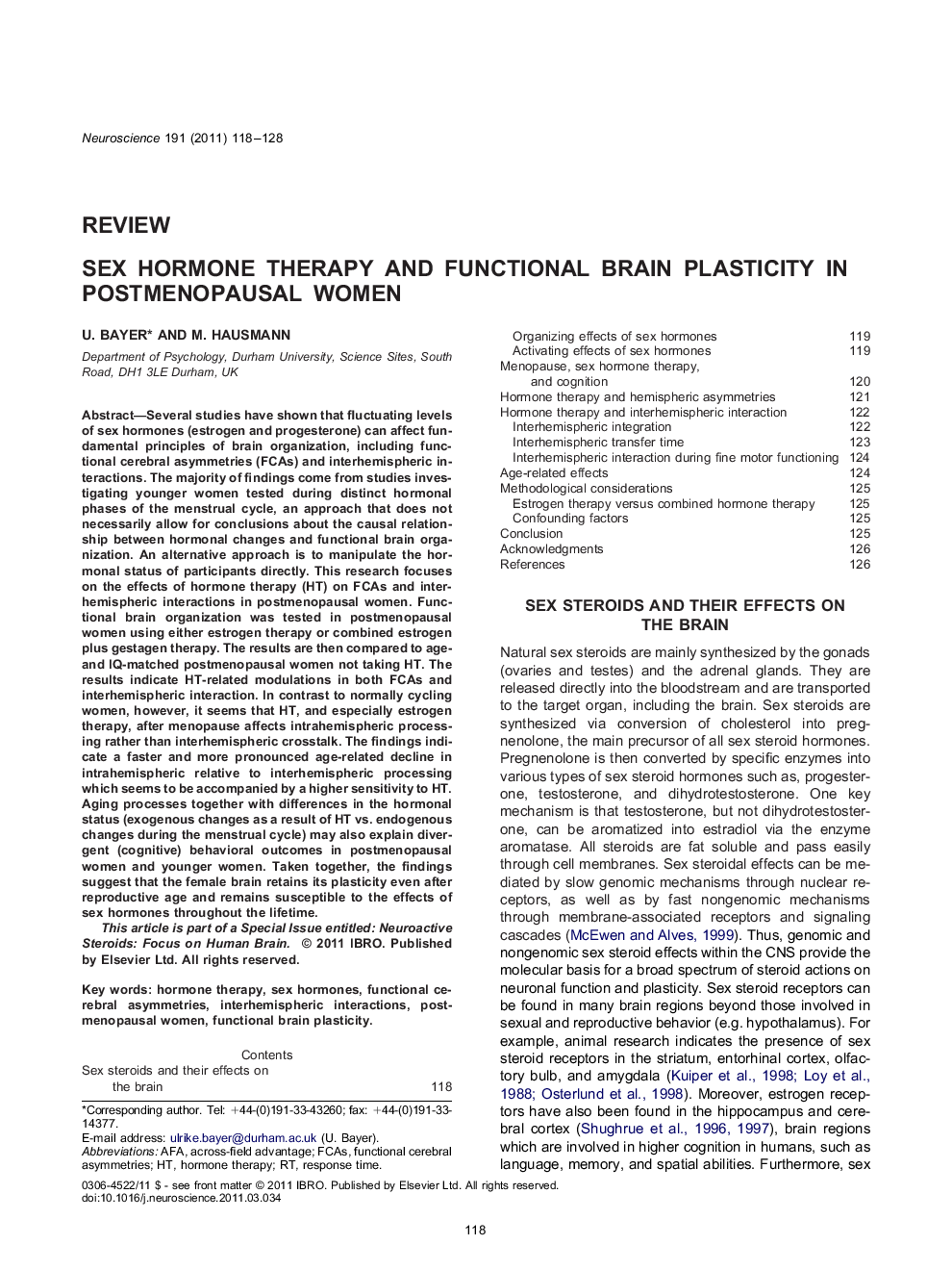| Article ID | Journal | Published Year | Pages | File Type |
|---|---|---|---|---|
| 4338786 | Neuroscience | 2011 | 11 Pages |
Several studies have shown that fluctuating levels of sex hormones (estrogen and progesterone) can affect fundamental principles of brain organization, including functional cerebral asymmetries (FCAs) and interhemispheric interactions. The majority of findings come from studies investigating younger women tested during distinct hormonal phases of the menstrual cycle, an approach that does not necessarily allow for conclusions about the causal relationship between hormonal changes and functional brain organization. An alternative approach is to manipulate the hormonal status of participants directly. This research focuses on the effects of hormone therapy (HT) on FCAs and interhemispheric interactions in postmenopausal women. Functional brain organization was tested in postmenopausal women using either estrogen therapy or combined estrogen plus gestagen therapy. The results are then compared to age- and IQ-matched postmenopausal women not taking HT. The results indicate HT-related modulations in both FCAs and interhemispheric interaction. In contrast to normally cycling women, however, it seems that HT, and especially estrogen therapy, after menopause affects intrahemispheric processing rather than interhemispheric crosstalk. The findings indicate a faster and more pronounced age-related decline in intrahemispheric relative to interhemispheric processing which seems to be accompanied by a higher sensitivity to HT. Aging processes together with differences in the hormonal status (exogenous changes as a result of HT vs. endogenous changes during the menstrual cycle) may also explain divergent (cognitive) behavioral outcomes in postmenopausal women and younger women. Taken together, the findings suggest that the female brain retains its plasticity even after reproductive age and remains susceptible to the effects of sex hormones throughout the lifetime.This article is part of a Special Issue entitled: Neuroactive Steroids: Focus on Human Brain.
▶We investigate the effects of hormone therapy on the brain in postmenopausal women. ▶Here, we focus on intra- versus interhemispheric processes. ▶Intrahemispheric processing is affected by estrogen therapy. ▶HT affects intrahemispheric rather than interhemispheric processing. ▶Effects can be explained by age-related neuromorphological and functional changes.
